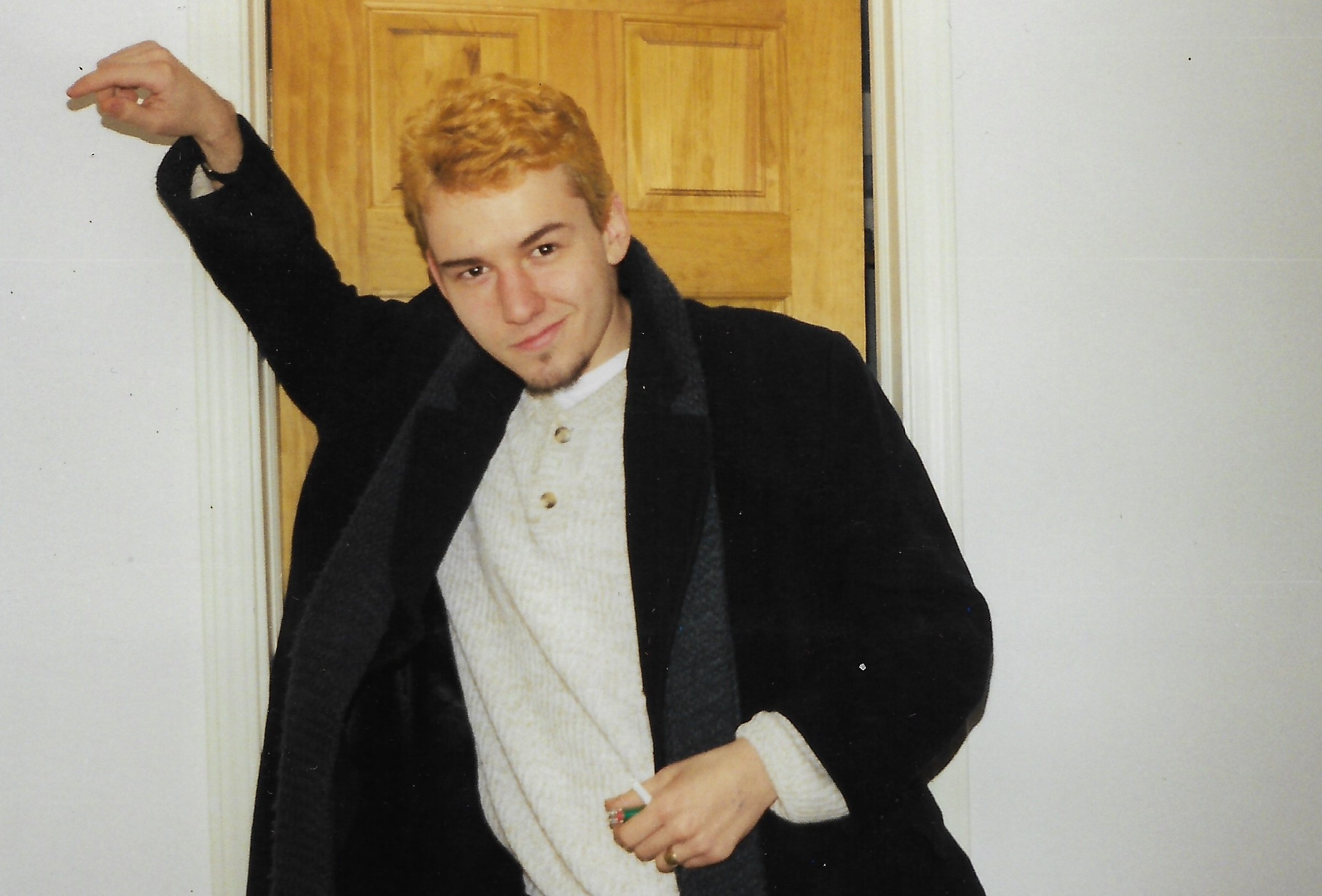Just Curious (Continued)
I’m curious about lofty justifications of hierarchy and patriarchalism, there's something idiotically comical about inequality explaining itself as a natural ideal. Any child can tell you people are born equal. It takes an ingenious intellectual acrobat to explain the divine right of kings, white privilege, male dominance and rapacious agriculture as “natural” or “beneficial.” Any child can tell you the kid with two popsicles should give one to the kid who has none, it takes a genius to explain why watching the surplus popsicle melt instead is better for the empty-handed kid's development.
I'm interested in Western Culture and how it is viewed by its discontents, critics, underdogs and outsiders. If Western Culture were some fine mansion, I'd like to visit the party inside, but I'd also want to see the view from outside the gates, from the servants' quarters, and from the graves of the natives buried under it.
Kids are always asking, “why why why?” And grown-ups are always saying “because because because.” A preacher says “because God,” a teacher says “because the test,” a parent might say “because I said so” or whatnot. Now, somehow, I've become all three of these, and my own children are asking “why why why?” And my inner child is still asking too.
I'm curious. And often perplexed. Why do people do the things they do? Individually and collectively? And how do they justify it? And why do I do the things I do? Why do I react to unfamiliar sensations and situations in these ways? How have I been programmed by nature? Programmed by culture? Programmed by dreams? I don't know. But I think about it a lot. And then I tell myself the same thing I would tell my children and my students: study it, read diverse perspectives, listen to your instincts, let it simmer in your dreams and maybe in the morning something will become clear.
The best advice I ever got as a writer was, instead of “write what you know,” “write what you would like to read.” I want to read books that explain very complex and serious things in an easy, playful way. I want learning to be fun.
Writing books helps me learn. My research projects start out with something I wish I knew more about. I read thousands and thousands of pages of books and essays and write tiny notes and comments in the margins. I type all those notes and quotes into a document, then sequence them to make the outline of a chapter. When the chapter is drafted I go over it again and again, adding and smoothing, adding and smoothing. Then when the book is drafted I read it a few times, adding and smoothing. And finally when I've released it, I've encountered all those quotes and ideas fifteen or twenty times, then they're pretty well lodged in my brain. And then I put the printed book on my mantle. I'm afraid to open it after that. Every time I do, I see some sentence I could have written better and obsess about it. But every so often I'll be looking for something in one of my books, read a paragraph and say “wow – that's a really interesting articulation of that idea. And that idiotic side-comment brings back a happy memory.”
My books are like safari souvenirs, reminders of interesting intellectual journeys. My office is a library of bookshelves, organized by categories. And I can look at a whole row of books on a topic, and then look at a single, slim volume where I've condensed that shelf. And I can find any quote when I'm writing or making a lesson plan, and the footnote will tell me where I found it.
PUBLISHING
When I was a teenager someone said to me “Self publishing? Career suicide.” That really stuck with me. Twenty years later I thought about it again, I could still hear his voice, “Career suicide.” But then I said “Hey wait a minute – by 'career' you mean this shriveled shard of career-fetus-jerky I carry in my belly? And it can finally die? Yeah! Let's do it.”
What I don't like about self-publishing is the idea of someone saying “'self-published' means it's been rejected by every single publishing company on earth.” That's not true of these books, none of them have been rejected by publishers.
A publisher would say “It's nice, but I just don't think thirty thousand people will buy it.” And I think, “Yeah, but what about three hundred? What about thirty? I'd write that book if three people would read it (I really would). And if three hundred people read it? Wow!” I love U2, but I don't need to be the U2 of scholarly books, I'd happily be the Waterboys of scholarship. If you've never heard of the Waterboys, that's what I mean, but people who love the Waterboys really love the Waterboys. And not the first five songs that pop up on Spotify, I mean the deep Waterboys, like the obscure second version of “Rags.”
THAT STUPID INITIAL
Yeah, the Lower Case “j.” As a kid, I thought I was going to be a comic strip artist, and wanted a cool signature. I liked the lower case j because it was half under the line, like this conscious “i” with a wild subconscious swirl under the surface. I signed things “john” for a while, and then when I was eighteen I wanted a genderless pen-name. My full name is Thomas John Snodgrass, or Thomas J. Snodgrass the Fifth if you're not into the whole brevity thing. I had to put that on the website somewhere because most people who know me have never heard of “j. Snodgrass.”
If anybody’s searching for Mr. Snodgrass who teaches at Canisius University, and taught at Brevard, Buffalo State, and Medaille... Good morning!
And I guess I should also put TJ Snodgrass in here somewhere, and in case anyone thinks I'm a Jonathan, I should put Jon Snodgrass (although I'm not the famous Jon Snodgrass – it's a pretty common name. Someday I want to be among the top 10 John Snodgrasses that come up on a google search, but I'll settle for top 40).





